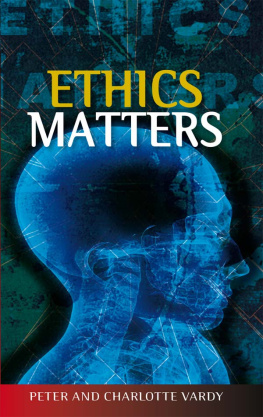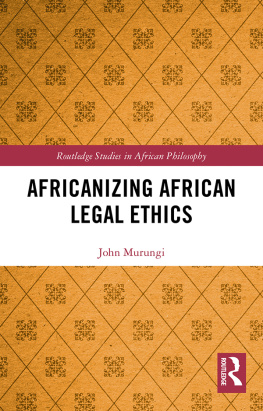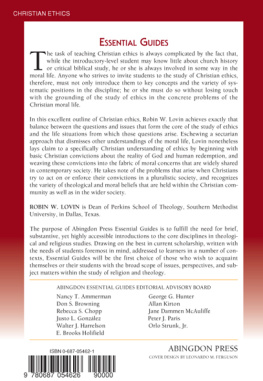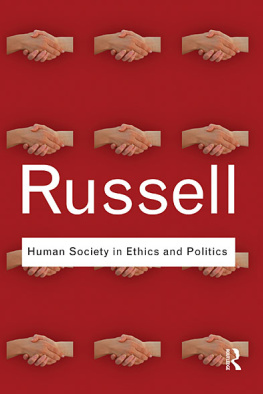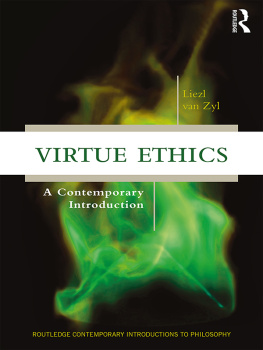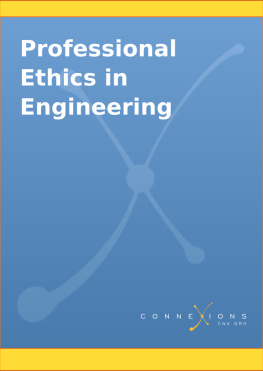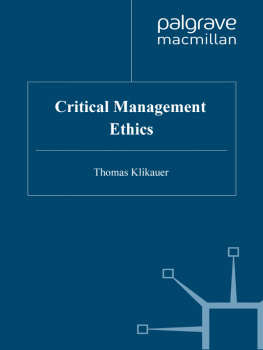MacCannell - The ethics of sightseeing
Here you can read online MacCannell - The ethics of sightseeing full text of the book (entire story) in english for free. Download pdf and epub, get meaning, cover and reviews about this ebook. City: Berkeley;Calif, year: 2011, publisher: University of California Press, genre: Romance novel. Description of the work, (preface) as well as reviews are available. Best literature library LitArk.com created for fans of good reading and offers a wide selection of genres:
Romance novel
Science fiction
Adventure
Detective
Science
History
Home and family
Prose
Art
Politics
Computer
Non-fiction
Religion
Business
Children
Humor
Choose a favorite category and find really read worthwhile books. Enjoy immersion in the world of imagination, feel the emotions of the characters or learn something new for yourself, make an fascinating discovery.

- Book:The ethics of sightseeing
- Author:
- Publisher:University of California Press
- Genre:
- Year:2011
- City:Berkeley;Calif
- Rating:3 / 5
- Favourites:Add to favourites
- Your mark:
- 60
- 1
- 2
- 3
- 4
- 5
The ethics of sightseeing: summary, description and annotation
We offer to read an annotation, description, summary or preface (depends on what the author of the book "The ethics of sightseeing" wrote himself). If you haven't found the necessary information about the book — write in the comments, we will try to find it.
The ethics of sightseeing — read online for free the complete book (whole text) full work
Below is the text of the book, divided by pages. System saving the place of the last page read, allows you to conveniently read the book "The ethics of sightseeing" online for free, without having to search again every time where you left off. Put a bookmark, and you can go to the page where you finished reading at any time.
Font size:
Interval:
Bookmark:
The Ethics of Sightseeing
The publisher gratefully acknowledges the generous support of the Ahmanson Foundation Humanities Endowment Fund of the University of California Press Foundation.
Dean MacCannell

University of California Press, one of the most distinguished university presses in the United States, enriches lives around the world by advancing scholarship in the humanities, social sciences, and natural sciences. Its activities are supported by the UC Press Foundation and by philanthropic contributions from individuals and institutions. For more information, visit www.ucpress.edu .
University of California Press
Berkeley and Los Angeles, California
University of California Press, Ltd.
London, England
2011 by The Regents of the University of California
Library of Congress Cataloging-in-Publication Data
MacCannell, Dean.
The ethics of sightseeing / Dean MacCannell.
p. cm.
Includes bibliographical references and index.
ISBN 978-0-520-25782-5 (cloth : alk. paper)
ISBN 978-0-520-25783-2 (pbk. : alk. paper)
1. TourismMoral and ethical aspects.
2. Sightseeing businessMoral and ethical aspects. I. Title.
G155.A1M15 2010
338.4'791dc22
2010040365
Manufactured in the United States of America
20 19 18 17 16 15 14 13 12 11
10 9 8 7 6 5 4 3 2 1
In keeping with a commitment to support environmentally responsible and sustainable printing practices, UC Press has printed this book on Rolland Enviro 100, a 100% post-consumer fiber paper that is FSC certified, deinked, processed chlorine-free, and manufactured with renewable biogas energy. It is acid-free and EcoLogo certified.
In the following pages I treat the symbolic terrain traversed by tourists, in their imagination and in reality, as an analogue of the unconscious with similar ethical contours, repressions, and the same potential for unexpected flashes of wit and insight. If there is any scandal here it is my abiding belief there should be no problem integrating insights from classic social theoryMarx, Durkheim, Lvi-Straussand psychoanalytic constructsFreud and Lacan. My overall aim is to examine and challenge a widespread assumption about tourism, that it is beneficial to character and social relations: that is, educational, enlightening, horizon expanding, stereotype dispelling, leading to peace and understanding, et cetera. I began by noting the aim of ethics is also the improvement of human character. It is only by rigorous and consistent application of ethics to action that human beings can become more courageous, temperate, liberal, generous, magnanimous, self-respecting, gentle, and just. At the nexus of ethics and tourism there should be hope (as the charter of the World Travel Organization states) for increasing human virtue corresponding to the growth of tourist travel and sightseeing.
Or not.
Constructing analytic frameworks around institutions that support sightseeing, and around certain habits of the tourist mind, I found barriers that block ethicsand paradoxically, sightseeing. The Ethics of Sightseeing is about identifying, describing, and undoing these blockages. This is an open and uncharted field. There are few ethical considerations in Happily there are breakout exceptions in unusually ethical habits of mind, in exemplary travel writing, in rare types of public art and architecture for tourists, and in enlightened curatorial and museum display theory and practice.
I try to give equal emphasis to ways of overcoming obstacles that block ethical sightseeing as to the barriers and blockages themselves. Some modeling of the act of sightseeing, the attractions, and psychic structures is required. But other than conceptual scaffolding that facilitates access to the sightseeing event, egomimetic attractions, fantasy, the touristic attitude, et cetera, other than these, I take few detours.
There is one broad area of exception. Symbols, symbolism, and the symbolic have properly occupied a key position in social theory from its beginnings. I have found it necessary to adjust and occasionally overhaul existing conception of the symbol and the symbolic in almost every chapter.
None of this is theory for theorys sake. My tinkering was dictated by the intricacies of my subject.
A note on method: This book is not anthropology, sociology, or cultural studies in any usual sense. I make no claim to use standardized methods. Nor do I wish to be read as having made unwarranted assertions for the approach I do use. Nonsystematic naturalistic observation combined with scholarship has serious limits of which I am quite a bit aware. I chose this approach because every other methodethnography, survey, experimentimposes even greater limits.
There is also little I can do to address questions about the context of my observations. Who are the sightseers? Who are we and who are they? I use qualifiers throughout, like tourists from the industrialized West, or working-class sightseers, et cetera. Obviously there is no way accurately to establish the range of validity of my observations. My only response is that this problem is not limited to the methods I use. Similar troubles overhang ethnology and laboratory research. Anthropological reports overstate their ethnographic subjects agreement on primitive beliefs. No one really knows if experimental findings hold outside the laboratory. The difference here is every one of my readers is well positioned to question my findings. There are precious few today who might knowledgeably question the validity of what Sir Raymond Firth said about Tikopian life in the 1930s. Even in the 1930s there was only one non-Tikopian who couldFirth himself. There are few who cannot knowledgeably question what MacCannell says about sightseers.
A risk I take situating every reader as a collaborator is that some will want to distance themselves from my findings and observations. Rewards potentially outweigh risks. My hope is the book will encourage more discussion and research into the ethics of tourism, creative ways of being a tourist, how tourists relate to social symbolism, and the subjectivity of sightseers. No one is more aware than I am that not all future research will be devoted to underscoring the clarity of my concepts or the accuracy of my models and observations. Quite a few of the books, book chapters, and articles following my 1973 study of staged authenticity in tourist settings seek to refute it. Others set out to refute the refutations. Nothing is healthier for the advancement of a field. So long as critiques and supportive studies are based on evidence, I look forward to joining the dialogue. I do not respond to comments along the lines of I just dont agree, or Some will find this insulting, or I dont like his attitude.
Please note this is an ethics of SIGHTSEEING, not of tourism, a much broader topic that includes sightseeing. I anticipate it will be misread as implying more. This is good when it inspires other students to engage and flesh out ideas. But if it inspires the occasional small-minded reaction that I make exaggerated claims for the scope or importance of my work, my answer is that that problem stems from the reader, not the text. Throughout I try to dispel the canard that I am the father of tourism research, or the founder of the field, or that I wrote the first book, or the first article. My notes and references make it clear I was not first in any category, and do not want to be seen as first. Nor I do desire to have the last word. My only wish is to inspire tourists and tourism researchers to more intense, creative, and ethical engagement with the act of sightseeing. I believe it to be more important to our future than we have so far discerned.
Next pageFont size:
Interval:
Bookmark:
Similar books «The ethics of sightseeing»
Look at similar books to The ethics of sightseeing. We have selected literature similar in name and meaning in the hope of providing readers with more options to find new, interesting, not yet read works.
Discussion, reviews of the book The ethics of sightseeing and just readers' own opinions. Leave your comments, write what you think about the work, its meaning or the main characters. Specify what exactly you liked and what you didn't like, and why you think so.

